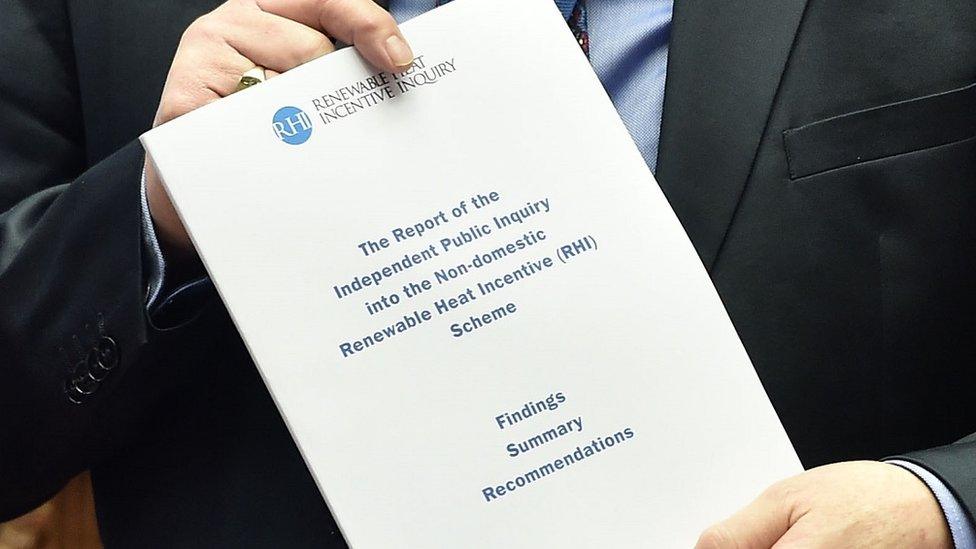Renewable Heat Incentive (RHI): Plan to shut scheme and compensate boiler owners
- Published
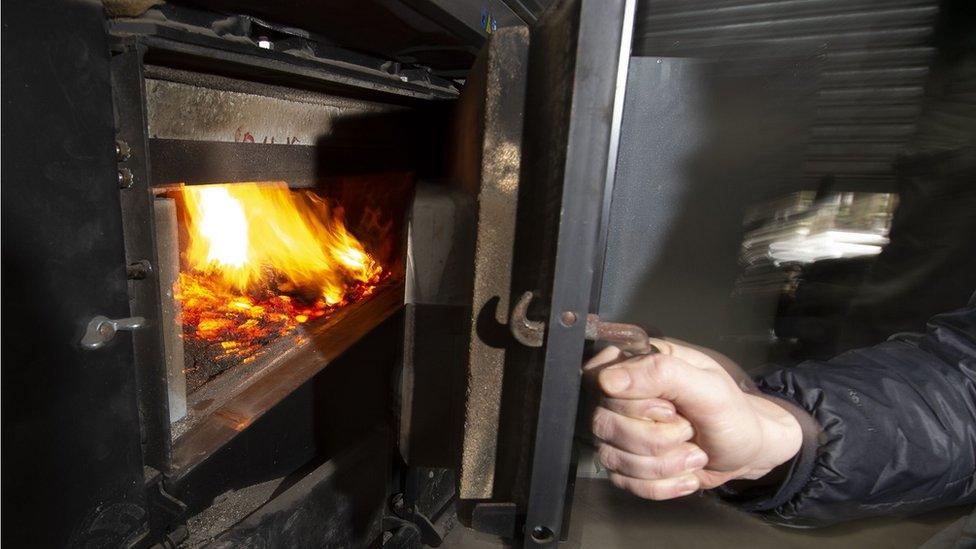
The RHI boiler scheme led to a three-year collapse of Stormont's devolved government
Plans to close the Renewable Heat Incentive (RHI) scheme and compensate participants have been set out by the Stormont executive.
It will cost £68m to buy out the 1,200 businesses in the non-domestic scheme.
It is estimated the average boiler will be eligible for a payout of up to £35,000, with some businesses having multiple boilers accredited to the ill-fated scheme.
The proposal has gone out to public consultation.
The plan is unlikely to go down well with scheme participants who say they invested heavily to avail of a 20-year government subsidy.
Most participants have only had five years of payments and those have already been drastically cut to prevent a huge overspend on the budget.
The botched green energy scheme caused the collapse of Stormont amid allegations of abuse and political patronage.
A public inquiry found there had been no illegality but the scheme had been poorly designed, run and monitored.
Boiler owners are taking the Department for the Economy to court over deep cuts to their subsidy payments.
'Premeditated outcome'
One boiler owner said businesses were "deeply disappointed" by the announcement.
They questioned the calculations underpinning the department's figures, describing them as "deeply flawed".
They also questioned why a range of options on the scheme's future had been offered for public consultation when the executive had a clear preference - something that was described as a "premeditated outcome".
It is understood owners may be prepared to challenge any closure decision in the courts, with the case running alongside existing action to challenge deep cuts in subsidy levels.
In her introduction to the consultation, Economy Minister Diane Dodds wrote: "I understand that some hold the view that no further money should be spent on RHI.
"However, for many businesses who made significant investments to participate the scheme has as many as 15 years remaining.
"Therefore I firmly believe that if it is to be closed compensation for that early closure should be paid to its legitimate participants who invested in the scheme in good faith."
The eight-week consultation closes on 9 April.
What was the RHI scandal?
The RHI scheme paid 1,200 businesses to switch from oil and gas to what was meant to be environmentally-friendly heating, using wood pellet boilers.
But the subsidy payment was higher than the cost of the fuel, creating an incentive to use the boilers to generate income.
It became known as the "cash-for-ash" scandal.
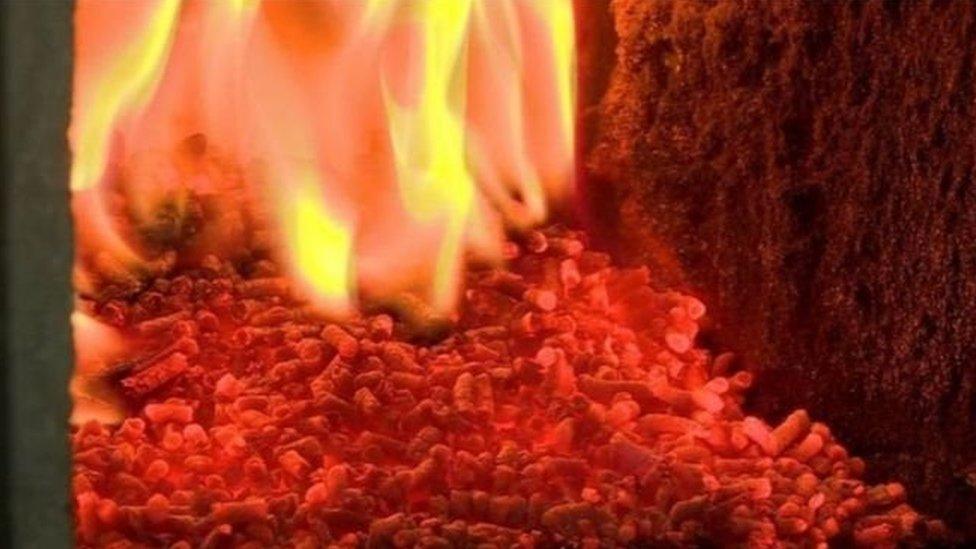
The RHI scheme had a 'burn to earn' incentive as subsidy payments were higher than fuel costs
Some businesses invested heavily in the scheme after it opened in 2012, installing multiple boilers on their properties to take advantage of a lucrative 20-year subsidy offer.
It was so popular it became oversubscribed - that, coupled with a lack of cost controls from its inception, meant that by 2016 Stormont was facing a multi-million pounds overspend.
The revelations caused a political crisis that led to a temporary collapse of Northern Ireland's devolved government in January 2017.
At one point the overspend was projected to reach as much as £700m but after reform of the scheme and significant cuts to subsidy rates the actual overspend was about £30m.

£30m The amount Stormont had to pay to cover the actual overspend
£490-700m Cost of 20-year projected overspend before RHI was reformed
£38,000Average cost of the most popular-sized RHI boiler
£23,000Average annual subsidy payment per boiler before tariff cuts
£2,000Average annual subsidy payment after tariff cuts
2,128Total number of RHI boilers in NI, many in poultry industry

A public inquiry into the running of the RHI scheme was set up in 2017 and this cost taxpayers a further £13m.
The inquiry concluded that it was not corruption that led to the scheme running out of budgetary control but rather flaws in its design as well as errors and lack of attention on the part of those responsible for overseeing it.
After the inquiry, Northern Ireland's First Minister Arlene Foster apologised for her "failings in the implementation" of the RHI scheme.
She had introduced the scheme in 2012 in her then role as enterprise minister.
Mrs Foster admitted to the inquiry that she had not read the RHI regulations before she brought them before the assembly for approval.
However, the inquiry also found that as enterprise minister Mrs Foster had been given inaccurate and misleading information about the scheme.
Three years after it collapsed over the RHI controversy, Stormont was restored in January 2020 under the New Decade, New Approach agreement.
That 2020 agreement stated the RHI scheme should be closed down and replaced with a new scheme that "effectively cuts carbon emissions".
- Published26 September 2020

- Published7 September 2020
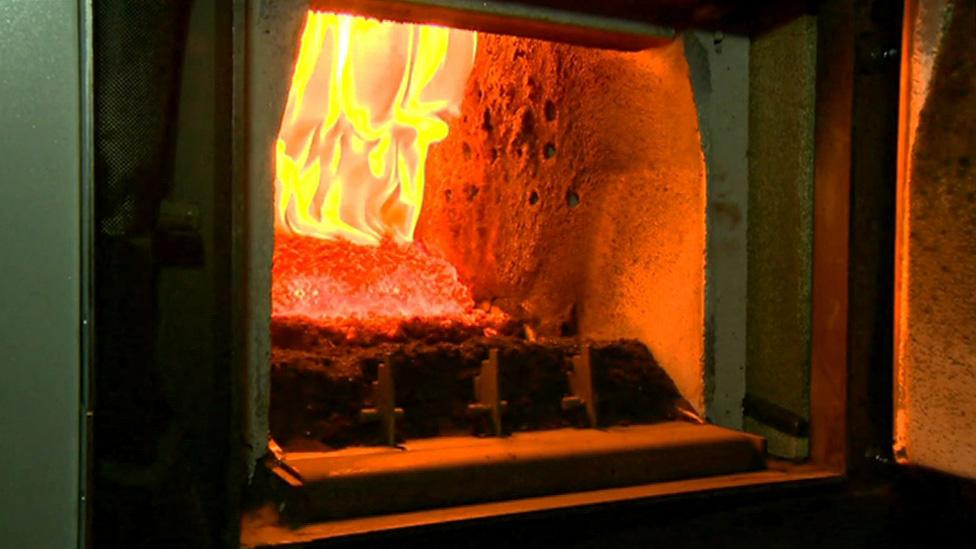
- Published13 March 2020
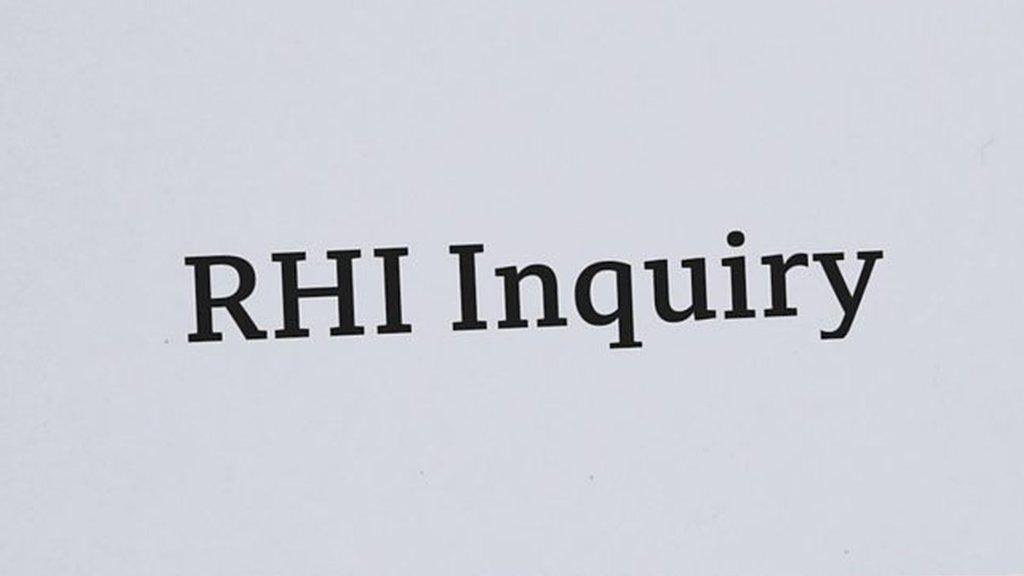
- Published13 March 2020
